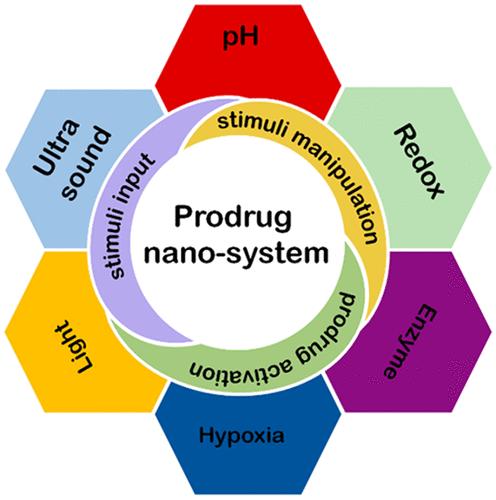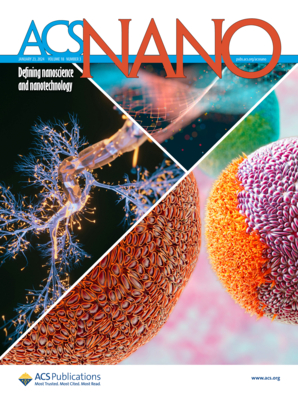Emerging Strategies in Stimuli-Responsive Prodrug Nanosystems for Cancer Therapy
IF 16
1区 材料科学
Q1 CHEMISTRY, MULTIDISCIPLINARY
引用次数: 29
Abstract
Prodrugs are chemically modified drug molecules that are inactive before administration. After administration, they are converted in situ to parent drugs and induce the mechanism of action. The development of prodrugs has upgraded conventional drug treatments in terms of bioavailability, targeting, and reduced side effects. Especially in cancer therapy, the application of prodrugs has achieved substantial therapeutic effects. From serendipitous discovery in the early stage to functional design with pertinence nowadays, the importance of prodrugs in drug design is self-evident. At present, studying stimuli-responsive activation mechanisms, regulating the stimuli intensity in vivo, and designing nanoscale prodrug formulations are the major strategies to promote the development of prodrugs. In this review, we provide an outlook of recent cutting-edge studies on stimuli-responsive prodrug nanosystems from these three aspects. We also discuss prospects and challenges in the future development of such prodrugs.

肿瘤治疗中刺激反应前药纳米系统的新策略
前药是化学修饰的药物分子,在给药前是无活性的。给药后,它们就地转化为母体药物并诱导作用机制。前药的发展在生物利用度、靶向性和减少副作用方面提高了传统药物治疗的水平。特别是在癌症治疗中,前药的应用取得了实质性的治疗效果。从早期的偶然发现到如今针对性的功能设计,前药在药物设计中的重要性不言而喻。目前,研究刺激反应激活机制、调节体内刺激强度、设计纳米级前药制剂是促进前药开发的主要策略。本文从这三个方面对刺激反应性药物前体纳米系统的最新研究进展进行了综述。讨论了这类前药未来发展的前景和面临的挑战。
本文章由计算机程序翻译,如有差异,请以英文原文为准。
求助全文
约1分钟内获得全文
求助全文
来源期刊

ACS Nano
工程技术-材料科学:综合
CiteScore
26.00
自引率
4.10%
发文量
1627
审稿时长
1.7 months
期刊介绍:
ACS Nano, published monthly, serves as an international forum for comprehensive articles on nanoscience and nanotechnology research at the intersections of chemistry, biology, materials science, physics, and engineering. The journal fosters communication among scientists in these communities, facilitating collaboration, new research opportunities, and advancements through discoveries. ACS Nano covers synthesis, assembly, characterization, theory, and simulation of nanostructures, nanobiotechnology, nanofabrication, methods and tools for nanoscience and nanotechnology, and self- and directed-assembly. Alongside original research articles, it offers thorough reviews, perspectives on cutting-edge research, and discussions envisioning the future of nanoscience and nanotechnology.
 求助内容:
求助内容: 应助结果提醒方式:
应助结果提醒方式:


